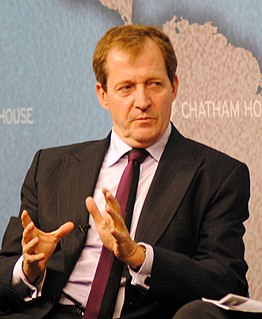A Quote by Masha Gessen
Now, academics are not always the easiest people to talk to, and the scholarly papers aren't always the easiest papers to read, but frankly, psychology papers, especially papers and books on terrorism, are very easy to read, and journalists should be reading them.
Related Quotes
In America, there's a very long tradition of a comic strip that comes in newspapers, which is not true all over the world. To sell papers, they put color comics in. It's worked, up until now. Now these papers can't afford it. They always had minuscule ad budgets, and now the things which people probably read these papers for are gone.
I never expected to be in the papers. I personally never expected to be in the papers. The height of my ambition for these books was, well frankly, to get reviewed. A lot of children's books don't even get reviewed.. forget good review, bad review. Personally, no, I never expected to be in the papers so it's an odd experience when it happens to you .
Unfortunately, there is something of a flaw in this idealized picture of the way the scientific community discovers truth. And the flaw is that most scientific work never gets noticed. Study after study has shown that most scientific papers are read by almost no one, while a small number of papers are read by many people.
I think blogging and the ability to instantaneously respond to news items has changed the way we approach all media. We're seeing people talking back to columnists, and going much further in the sexual realm than most papers, even alternative weeklies, will publish. I'm surprised more papers aren't having people do what you're doing with an online only column, and to be honest, I read almost all the media I do read online, and plenty of other people do, too, so I don't know what's stopping them.
"There is no analysis here," the most brutal of them wrote. Now I wonder if my papers lacked critical thought, or if it was really more about my inability/refusal to write in the convoluted style that they wanted me to. I remember the initial shock upon reading my peers' papers. I seriously could not understand them, and I couldn't understand why the writing had to be so unclear in order to be considered smart.
The papers that flourish will be papers that serve a national audience. Papers that have figured out how to make the transition to the electronic platform that aren't simply providing a duplicate experience of the words on paper experience, but are doing something that arises organically from the new electronic medium. It's really just a matter of finding the right platforms for the way people want to read newspapers. I mean, maybe it will be the iPhone. But one way or another, newspapers on paper are just not really going to exist to any significant degree within a decade.
































